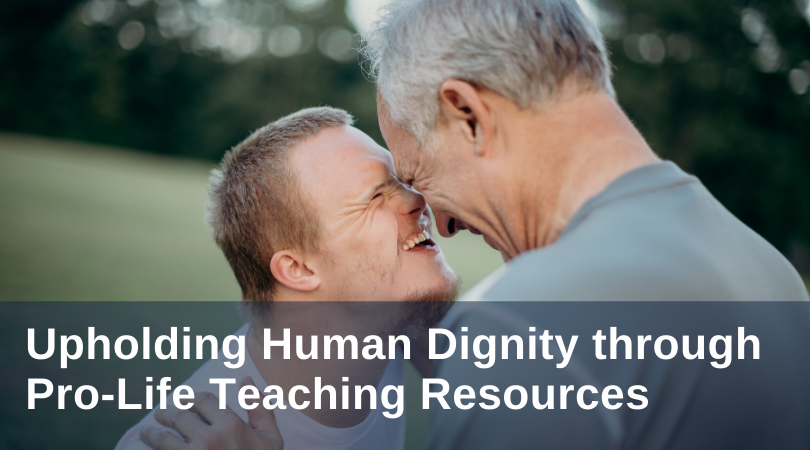
If education is to be transformative, it must engage the mind, capture the imagination, and spark a desire for real engagement with the world. Julián Carrón writes, “Education is not explaining reality or forming some argument about it; it is helping another person . . . enter into reality” (“A Communication of Yourself,” in Disarming Beauty: Essays on Faith, Truth, and Freedom, 168). This kind of education is not a passive memorization of facts, but rather an “encounter.” Such encounters captivate the attention, propose “a hypothesis of meaning,” and inspire students to search for what is good, true, and beautiful.
How might this culture of encounter inform the way we address life issues in the classroom? Often, discussions surrounding life issues become sterile and even hostile. We become entangled in the complexity of divergent opinions and lost in the disparaging rhetoric of this highly politicized issue. When I started brainstorming how to discuss the issue of abortion with my Moral Theology class, I was intimidated. How can I showcase the humanity of the unborn in a compelling way? Is it even worth it to try to teach on a topic that’s become so controversial?
Soon after, I stumbled upon the Teaching Human Dignity series from the McGrath Institute for Church Life. These are a series of free resources that empower teachers to incorporate life and human dignity issues into existing curricula. I realized the lessons on Disability Selective Abortion (DSA) that were part of a social studies unit—Making Sense of Historical Atrocities—could be easily adapted for my class. DSA refers to the widespread practice of aborting unborn children who are positively diagnosed with Down Syndrome through prenatal testing. By inviting my students to encounter the reality of DSA, I hoped to open their eyes to the injustice of abortion of any kind.
My students viewed news segments that covered the prevalence of DSA. Along with the video links and accompanying worksheets, the lesson included a discussion guide and answers that went beyond just the basic facts of the video, helping the students to probe what was said, shown, and left out of the videos and how all of this conveyed a particular message. It was amazing to see my students recognize how society’s idolization of productivity and fear of suffering leads to a devaluing of those who suffer and “fail” to meet standards of productivity.
Through videos produced by the Jérôme Lejeune Foundation, my students and I encountered a new narrative. We saw that those who live with Down Syndrome live full lives in which they struggle heroically, achieve greatly, work creatively, and love fiercely. As a class, we acknowledged that people with Down Syndrome suffer, but who in life is free from suffering? Who are we to say that their particular suffering is unacceptable, while mine is acceptable?
These videos were profoundly moving for one student in particular. As the last video finished, I noticed tears in her eyes. She explained that her brother has a developmental disability, and that she has spent time working with other people who have disabilities. She spoke of their love and their joy. Her witness uncovered the humanity of those who are regularly discarded—those whom others deem “unproductive” or doomed to a life of suffering. Her authenticity and genuine love spoke louder than any set of statistics ever could. In Evangelii Nuntiandi, Pope Paul VI wrote, “Modern man listens more willingly to witnesses than to teachers, and if he does listen to teachers, it is because they are witnesses” (§41). I am grateful that these resources allowed me to step aside and make room for my student to witness to the dignity of all life, and so become a teacher to us all.
Visit the Teaching Human Dignity resources page by clicking the button below:
Editorial Note: This post originally appeared on NCEATalk, the blog of the National Catholic Education Association on March 2, 2021. It is republished here with permission.
Featured image by Nathan Anderson via Unsplash



